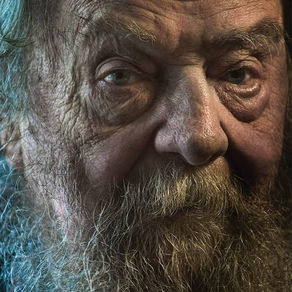- Gail Wilson Kenna
- Nov 3, 2025
- 2 min read
Forgive this long litany of Place to make a point. I have lived in Fullerton, California, Phoenix & Tempe, Arizona, Anaheim, then Fullerton again until age 22. What followed “home” were San Francisco, Redondo and Manhattan Beach, San Antonio, Texas, Fairfield, CA, Napa Valley, Montgomery, Alabama, Otterberg, West Germany, Vacaville, CA, Montgomery again, Annandale, VA, Kuala Lumpur, Malaysia, Annandale a second time, Caracas, Venezuela, Falls Church, VA, Bogota, Colombia, Lima, Peru, and now the Northern Neck of Virginia.
What was missing in all of them? The Fall I am seeing now, in 2025, as if Nature offers a counterbalance to the Shut-down and the overall political gloom. I only know Nature has given this California born-resident, something never experienced in all of the above locations.
This photo was taken from webmaster Ilona’s porch.

Lately, I spend a lot of time gazing at Mill Creek and its trees in their glorious Fall before winter. I sit here now before light this Monday morning and reminisce about having to choose a state to study in fifth grade for Mr. Moore, a revered teacher at Fullerton Elementary. I choose Maine because it was at the other end of the United States. I don’t remember if Mr. Moore or my father told me how to write to a department of tourism in Maine. But I haven’t forgotten my excitement when I opened a large manila folder addressed to me. In it were colored photographs and booklets providing everything I needed to know about Maine. My mother almost died that year and in my mind I see her under a hospital’s white sheet, her face as white as the sheet, hardly able to speak. Yet this image is juxtaposed with trees in Maine. I did not know trees could turn red, orange, yellow, and gold. I knew trees bore oranges and lemons (my father a Sunkist man) and I’d seen color in flowers. But trees like those in Maine?

Mike and I arrived here in the Northern Neck from Lima, Peru, in early October of 2004. I told a neighbor how excited I was about fall. “This?” she said, chuckling. “You should go to Vermont or Maine.” We never know each other’s history, do we? I probably countered with, “The one here looks good to me.”
I have lived on Mill Creek Lane for twenty-one years now, and I will say this Fall is the most beautiful I remember. We have had a crop of Fugi (Fuyu) persimmons that is not to be believed. I don’t know if we will face a colder winter than usual. But this Fall seems an extraordinary gift right now. If I were hungry, as so many are or will be, with forty million on government assistance, the shut-down continuing…..I might not be relishing this glorious early November.
Though I do hope its beauty might lessen whatever despair I were feeling. Nature’s beauty as solace….


















